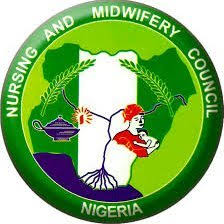The Director General, Nigeria Natural Medicine Development Agency (NNMDA), Prof. Martins Emeje, has decried overreliance on imported medicines attributing it to the erosion of traditional medicines due to colonialism and corruption, stressing the need for recognition of health research and development (R&D) as a national security issue.
Emeje, disclosed this at a one-day training webinar titled, “Building a Transparent and Accountable Public Institution and Inauguration of the Anti-Corruption and Transparency Unit (ACTU) of the NNMDA.”
According to him, one medicinal plant cultivated and exploited could create 3.4 million jobs and generate over N100 billion in foreign exchange, amid calls for his agency to address the proliferation of unregulated herbal drinks.
He called for the development of medicinal plants, saying it would contribute to the economic empowerment of Nigeria, particularly in terms of job creation, revenue generation, and export potential, and health R&D is a national security issue.
The distinguished Professor of drug delivery and nano-medicine reiterated the agency’s commitment to transparency in research and natural medicines development.
While describing the inauguration of ACTU members as a significant step toward fostering transparency and fighting corruption, he said with transparency, the agency driving the principle of Renewal of Hope to develop natural medicines.
“Most of our medicines are imported and that is the narrative we are changing; so, within one and a half years, we have proven that Nigeria can do it transparently without stealing,” Emeje said.
Medicinal plant development crucial to Nigeria’s economic
Reiterating that medicinal plant development is crucial to Nigeria’s economic empowerment, Emeje highlighted the significant advantages of developing medicinal plants, stressing their potential to bolster Nigeria’s economy.
He noted that this initiative could lead to increased job creation, enhanced revenue generation, and greater export opportunities. Furthermore, Prof. Emeje underscored the importance of health research and development (R&D), declaring it a critical national security issue.
His remarks call for a concerted effort to harness the benefits of medicinal plants for the country’s growth and stability.
He said, “I have been saying that the development of medicinal plants will contribute to the economic empowerment of Nigeria, particularly in terms of job creation, revenue generation, and export potential, and health research and development is a national security issue.
“Our in-house modest estimate shows that, with just one medicinal plant cultivated and exploited fully for product development, 3.4 million jobs will be created, generating over 100 billion naira in foreign exchange.
“A brief description of global herbal trade below should tell us why investing and protecting health research should be a priority; today’s commercial medications and pharmaceuticals contain active components originating from plants in about 40 – 60 per cent of cases.”
Global shift towards natural products
Emeje pointed out a growing trend among individuals worldwide who are increasingly prioritising their health.
He noted that many people are moving away from synthetic chemical products and are opting for natural and organic items in their daily routines. “This shift reflects a broader awareness of health and wellness, as consumers seek safer and more sustainable alternatives in their lifestyles,” the NNMDA boss noted.
He continued: “People across the globe are becoming more concerned about their health, and they are running away from synthetic chemical products and using natural and organic items more often in their daily lives.
“The acceptance of medicinal plants extends beyond Nigeria, for example, the Food and Agricultural Organisation estimates that 77 million acres of land were used to produce 330 million tons of medicinal plants worldwide.
“Even developed countries of Japan, USA, and Europe are the major consumers of medicinal plants, while India and China are the most important global suppliers. More than 70 per cent of the demand for herbal medicines worldwide is produced in China and India with India alone exporting raw herbs valued at USD 330.18million.
“The worldwide trade of added-value extracts of medicinal plants and herbal products reached USD 456.12 million in 2017–2018. The most significant medicinal plant suppliers’ in Africa are Egypt and Morocco. It is anticipated to increase at a compound annual growth rate of 6.6 per cent from 2015 to 2025, reaching USD 35.4billion,” he added.
WHO’s prediction
“With World Health Organisation (WHO) prediction, the global herbal market will rise from its current level of USD 62 billion to USD five trillion by 2050. Is it not obvious that we need to protect our biodiversity?” Emeje queried, rhetorically.
On his part, Independent Corrupt Practices and Other Related Offences Commission (ICPC), Resident Commissioner for Lagos State, Kabir Elelu urged NNMDA to address the proliferation of unregulated herbal drinks in the country.
Disturbed by the unchecked sale of herbal mixtures, commonly referred to as “Ala Agbo,” by hawkers, Elelu, said the consumption of such substances posed severe health risks.
He said, “One particular area I want you to look at is the area of this natural medicine; how do we harness them and protect public health?
“You also need to look at how it has been bastardised by hawkers and some of them are killing our people. I want the agency to look into this and come out with a solution because it is a huge problem; it is a problem in all areas of the country with all kinds of concoctions that are killing our people.
“Now, we have a high rate of liver cirrhosis and all kinds of diseases that can be associated with the intake of herbal concoctions,” Elelu added.
ICPC’s mandate
Highlighting the ICPC’s mandate under Section 6 of its Act, Elelu explained the commission’s roles in investigating corruption, preventing it through system audits, and educating the public on its dangers.
He stressed the importance of ethics, integrity, and public service diligence in combating corruption.
“Corruption has infiltrated every sector in Nigeria resulting in insecurity, inflation, unemployment, and challenges in the oil and gas industry.
“As public servants, we must lead the fight against corruption, starting from our own spaces,” he said.
Elelu applauded the NNMDA for its credible performance on the ICPC Ethics and Integrity Compliance Scorecard, where it consistently scored above 70 per cent.
However, the commissioner tasked the agency to intensify its efforts to promote transparency.
SOURCE: DAILY SUN NEWSPAPER




